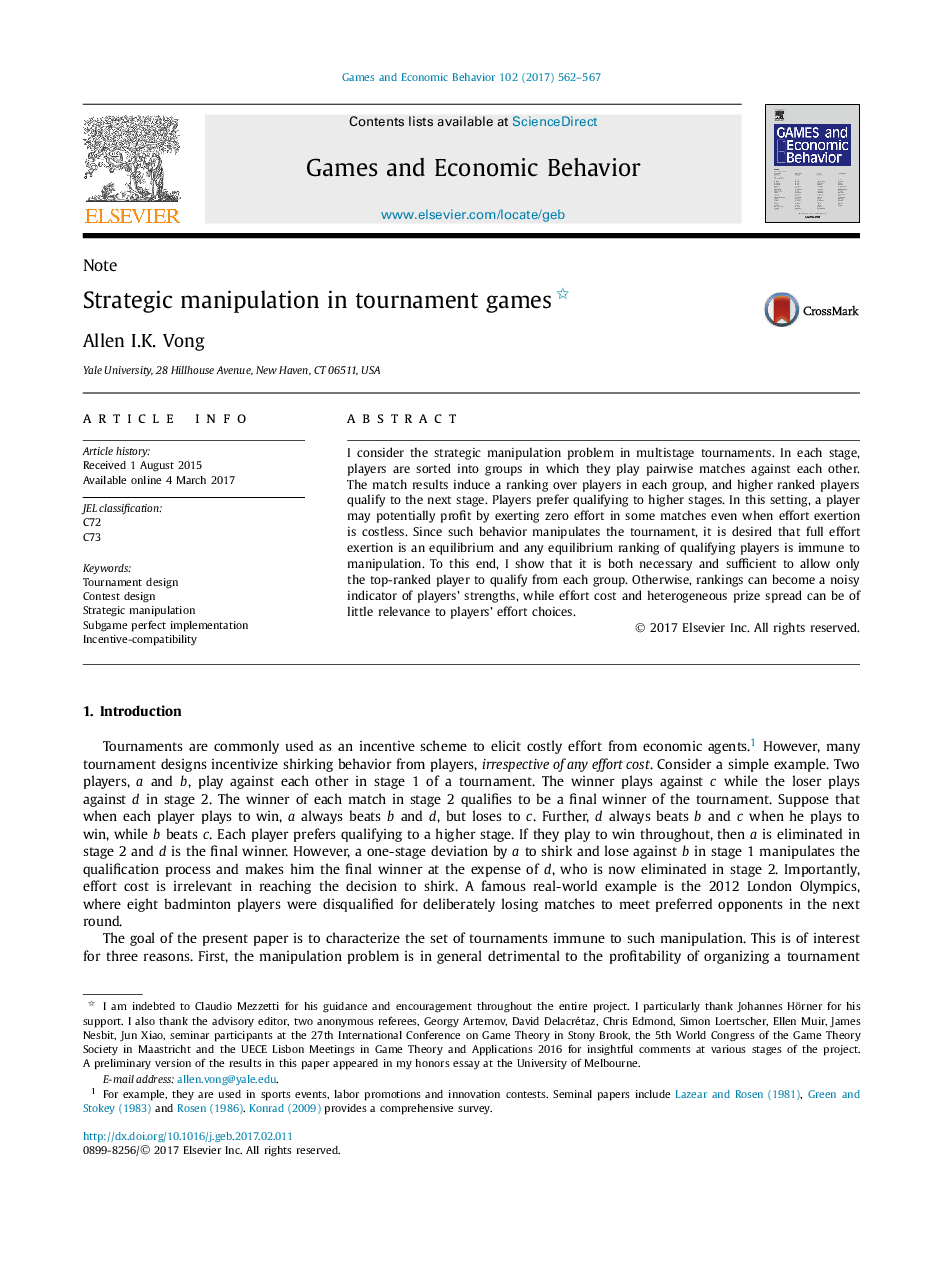| Article ID | Journal | Published Year | Pages | File Type |
|---|---|---|---|---|
| 5071316 | Games and Economic Behavior | 2017 | 6 Pages |
Abstract
I consider the strategic manipulation problem in multistage tournaments. In each stage, players are sorted into groups in which they play pairwise matches against each other. The match results induce a ranking over players in each group, and higher ranked players qualify to the next stage. Players prefer qualifying to higher stages. In this setting, a player may potentially profit by exerting zero effort in some matches even when effort exertion is costless. Since such behavior manipulates the tournament, it is desired that full effort exertion is an equilibrium and any equilibrium ranking of qualifying players is immune to manipulation. To this end, I show that it is both necessary and sufficient to allow only the top-ranked player to qualify from each group. Otherwise, rankings can become a noisy indicator of players' strengths, while effort cost and heterogeneous prize spread can be of little relevance to players' effort choices.
Related Topics
Social Sciences and Humanities
Economics, Econometrics and Finance
Economics and Econometrics
Authors
Allen I.K. Vong,
